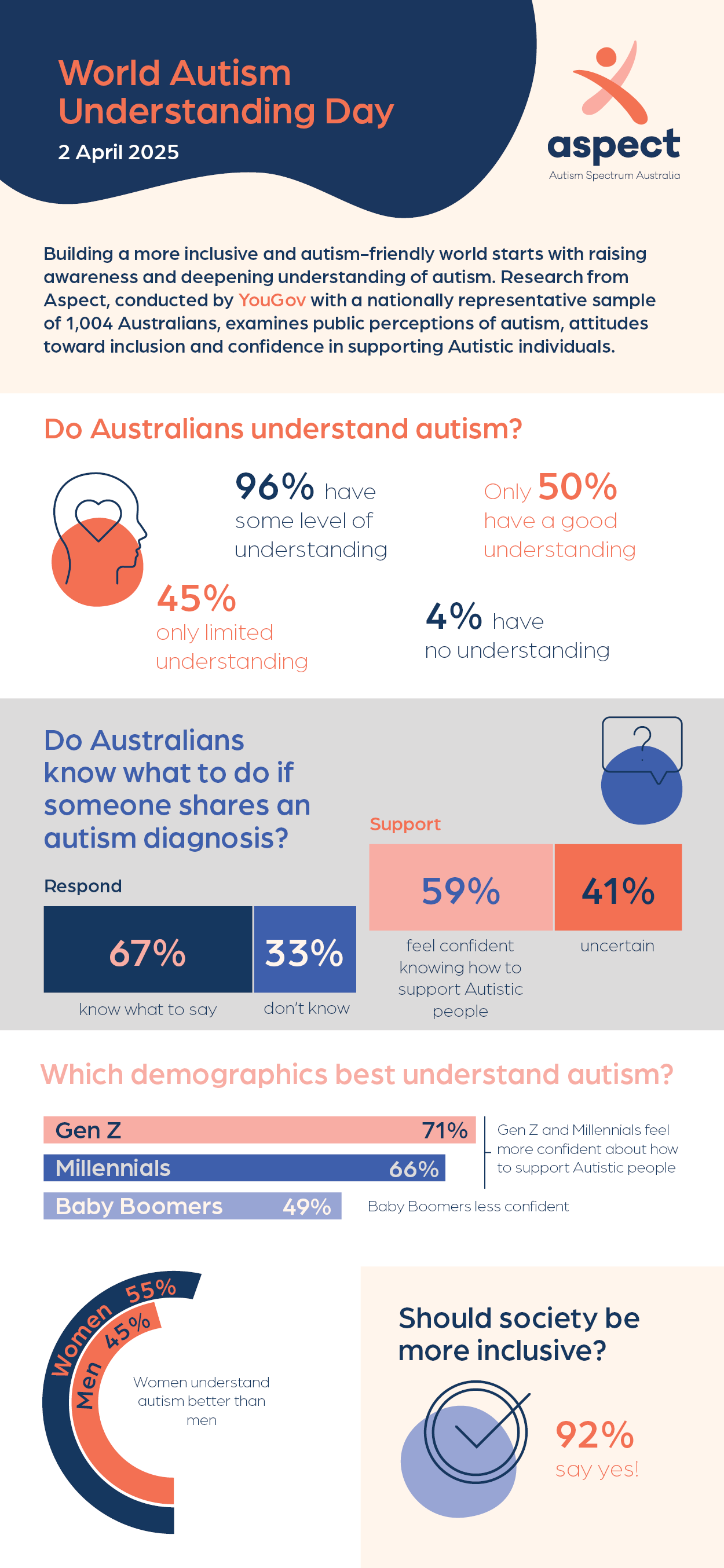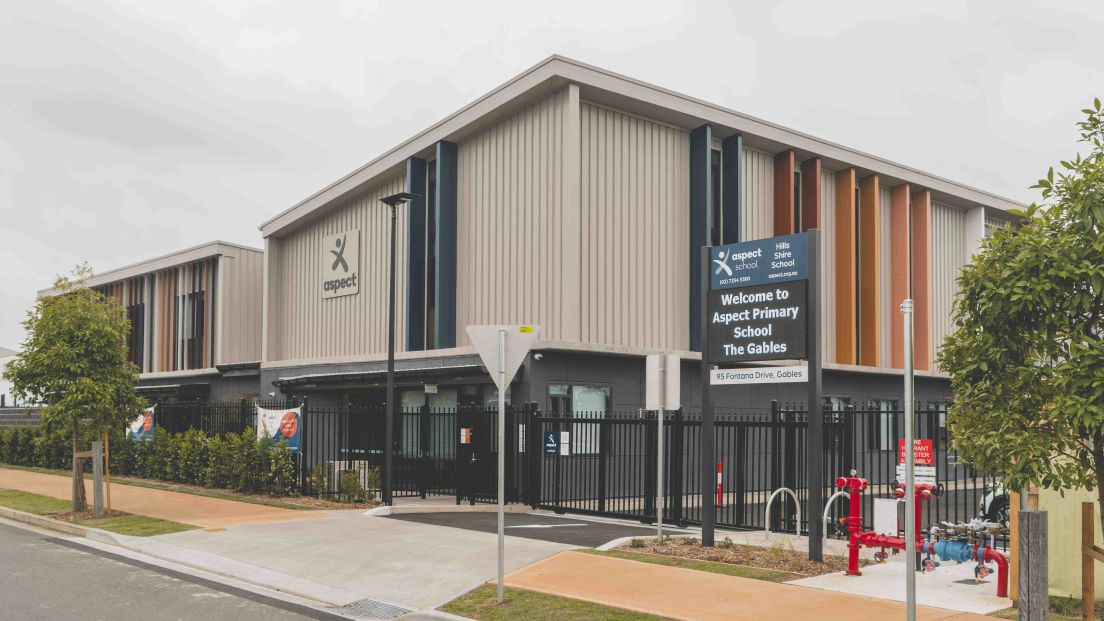Learn more about autism: Aspect’s call to action on World Autism Understanding Day
Aspect (Autism Spectrum Australia) is marking World Autism Understanding Day (2 April) with a powerful new campaign to enhance the public’s understanding of autism and provide practical guidance on how Australians can better support people on the autism spectrum.
New research, conducted by YouGov among more than 1,000 Australians, reveals that only half (50%) of Australians believe they have a good understanding of autism and a further 45% admit to having only a limited understanding.
The findings also highlight that many Australians are unsure how to respond when someone discloses they are Autistic. A concerning one third of Australians said they would not know what to say. Similarly, only 59% of Australians feel confident in knowing how to support people on the autism spectrum, leaving two in five people uncertain about how to offer meaningful assistance.
Jacqui Borland, Aspect’s CEO, said these insights highlight a significant gap in autism understanding and reinforce the importance of equipping people with the right knowledge and confidence to interact supportively with Autistic individuals.
“We estimate that at least 1 in 40 Australians have been diagnosed on the autism spectrum, so it is a part of everyday life for many Australians – whether it’s a family member, a friend, a colleague or a customer,” said Ms Borland.
“While awareness of autism has grown over the years, true understanding remains a challenge. Every person who takes the time to learn more about autism and how to offer meaningful support brings us one step closer to a society that embraces genuine inclusion.”
Aspect’s campaign focuses on practical, everyday actions that can help create a more inclusive society. This includes simple changes in language, recognising individual needs and adopting an open and respectful approach when engaging with Autistic people.
Michael Theo, an Autistic actor and autism consultant at Aspect said he’s experienced first-hand a lack of understanding of autism.
“I am not surprised to see these research results and know what it feels like when people in society don’t understand what autism means and what they can say or do to be supportive,” said Michael.
“I applaud anyone who can admit they don’t understand autism because it shows a willingness to learn more and that’s what will make a real difference for myself and others on the autism spectrum.
“It is tiring and can be demeaning to try and constantly fit in at a workplace, at parties, at school or simply shopping, so the more people know about small things they can do to support us, the better society will be.”
The research also found that younger Australians, particularly Gen Z (71%) and Millennials (66%), feel more confident about how to support people on the autism spectrum than older generations (Baby Boomers 49%). Additionally, women are more likely than men to report a good understanding of autism (55% vs 45%) and to believe in the importance of greater societal inclusion (95% vs 89%).
“The good news is that most Australians overwhelmingly agree, with 92% of respondents believing society should become more inclusive of people on the autism spectrum,” added Ms Borland. “This campaign is about turning that belief into action. With better understanding, we can create a world where Autistic people feel truly seen, heard and supported.”
Aspect is calling on all Australians to take part in World Autism Understanding Day by learning more about autism, reflecting on their own understanding, and making small but impactful changes in their interactions.
For more information on how to get involved and to access resources, visit www.aspect.org.au/waud




